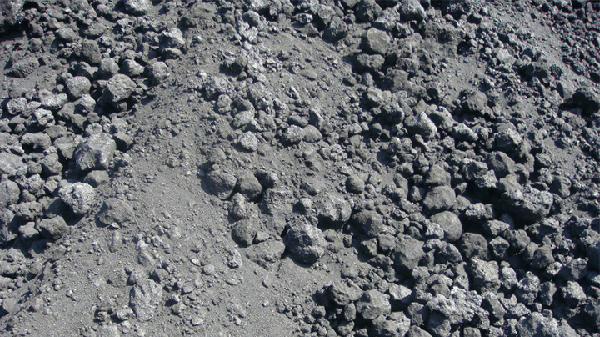
Calcined petroleum coke is an oil by-product that is commonly produced through refinery processes using heavy crude oils. These processes produce a higher amount of resid (refractory matter), or GPC, than lighter crude oil refineries. Most GPC is used as fuel in power generation plants, or for cement production. However, higher quality GPC is also used in the calcining industry. As of 2013, the global production of GPC was around 115 million DMT.
Needle Petroleum Coke is a type of petroleum-based gasoil produced by catalytic cracking. Its composition and properties depend on feedstock properties, hydrocarbon content, mechanical impurities, molecular weight distribution, and viscosity. The traditional feedstocks for needle coke production include decanted heavy gasoil from catalytic cracking, coal pitches, and low-sulfur petroleum. Its availability is dependent on the hydrocarbon resources available.
Needle coke is a speciality product and exhibits a concentrated supply structure. Only ten major producers produce the fuel worldwide. Most medium-sized refineries do not have complex coking setups or delayed cokers.

Calcined petroleum coke (CPC) is a fossil fuel. It is produced by refining heavy crude oil. It is sold as a fuel in the cement and power industries. High-quality GPC has lower sulfur and trace metals. It is also sold to the calcining industry. It is estimated that about 115 million DMT of CPC is produced each year worldwide.
Unlike green coke, calcined petroleum coke is not a waste product. It can be used for many applications, from gasoline to aluminum smelting. It is also used to produce specialty products and utility fuels. The 214th National Meeting of the American Chemical Society, including the Division of Fuel Chemistry, has examined the environmental impact of CPC.
Calcined petroleum coke (CPC) is produced from green petroleum coke (GPC) through a calcining process. It is widely used for fuel and is a valuable byproduct of the aluminium smelting process. It is cheap and widely available. This article describes its production and uses and examines the role of various calcining technologies. It also considers the effects of changes in crude oil quality and refining economics on the quality of green petroleum coke.
The calcined petroleum coke market is divided into different regions, with Asia-Pacific claiming a major share. This region is witnessing growth in construction expenditure owing to rising population and urbanization. North America is another region with increasing investments in oil refineries and the burgeoning metal industry.

Write a Message